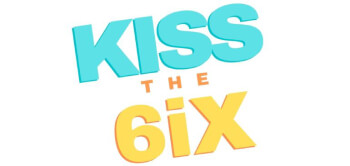chevron_left
-
 play_arrow
play_arrow
LISTEN LIVE LISTEN
AD
The Importance of Inclusive Language in Promoting Understanding and Acceptance
Language plays a vital role in our interactions and the way we comprehend one another. As society becomes increasingly diverse and interconnected, it is crucial to be mindful of the language we use. Michigan State University’s (MSU) Inclusive Guide serves as a valuable resource in promoting understanding, acceptance, and inclusivity. In this article, we will explore the significance of inclusive language and provide alternative terms to foster a more equitable and welcoming environment for everyone.
Acknowledging the Need for Inclusive Language
Adapting to inclusive language has been a gradual process for me, given my upbringing in the ’70s, ’80s, and ’90s. Like many individuals of my generation, certain linguistic patterns were ingrained in me during my formative years. Unfortunately, inclusive speech was not a prominent aspect of our education. However, recognizing the importance of inclusive language and actively incorporating it into our communication is essential.
The Significance of Inclusive Language
Inclusive language plays a crucial role in acknowledging and respecting the diverse identities and experiences of individuals. By using inclusive language, we contribute to the creation of a more equitable and welcoming environment. The MSU Inclusive Guide offers valuable suggestions to help us avoid language that may unintentionally marginalize or exclude certain groups of people.
Terms to Avoid and Suitable Alternatives
To ensure inclusivity, it is important to be mindful of certain terms that may inadvertently exclude or marginalize individuals. Here are some examples of terms to avoid and alternative language to use:
1. Holiday-related words
In order to be inclusive of individuals from various cultural and religious backgrounds, it is advisable to refrain from using specific holiday-related terms. Instead, consider using more general expressions such as “Happy Holidays” or “Season’s Greetings.”
2. Ableist language
Using ableist language can perpetuate negative stereotypes and marginalize individuals with disabilities or mental health challenges. It is best to avoid terms like “insane,” “bonkers,” “nuts,” “senile,” “paralyzed,” “addict,” “lunatic,” “crazy,” and “tone-deaf.” Opt for terms like “silly,” “absurd,” or “outrageous” instead.
3. Gendered language
Gendered language can inadvertently reinforce gender stereotypes and diminish individuals to their biological characteristics. To avoid this, it is recommended to avoid using “female” as a noun for women or “nickname” as a substitute for a person’s legal name. Additionally, consider using “first-year” and “advanced” instead of “freshman” and “upperclassman.” By using “second-year,” “third-year,” and “fourth-year” in place of “sophomore,” “junior,” and “senior,” we can move away from male-centric and Western father-son language.
4. Size-related terms
Terms such as “obese,” “obesity,” and “overweight” can perpetuate stigmas in the size-diversity community. It is preferable to use terms like “higher weight” or “larger-bodied” when discussing these topics, ensuring that we maintain a respectful and inclusive environment.
5. Identity-specific language
To create an inclusive environment, it is essential to use language that aligns with an individual’s identity and avoid generalizations about identity groups. Avoid making assumptions about someone’s gender, pronouns, or cultural background. When in doubt, always ask for clarification and respect their preferences.
Fostering an Inclusive Environment
By being mindful of our language choices, we can contribute to fostering a more inclusive and respectful environment for everyone. MSU’s Inclusive Guide serves as a valuable resource, providing insights and suggestions to help us navigate the intricacies of inclusive language. By making small adjustments to our language, we can actively contribute to a more equitable, diverse, and inclusive world.
In conclusion, language holds immense power in shaping our interactions and perceptions. As our society continues to evolve, it is crucial that we adapt and embrace inclusive language. By acknowledging the significance of inclusive language and implementing it in our everyday communication, we can create a more understanding and accepting environment for individuals from all walks of life. Let us strive to be agents of positive change, one word at a time.
Written by: Slim
Diversity and Inclusion Inclusive Language Respecting Diversity
Rate it
Similar posts
-
Recent Posts
Featured post
Latest posts
Current show
Upcoming shows

Slim Jams
Slow Jams
9:00 pm - 12:00 am
Slim Jams
Slow Jams
12:00 am - 3:00 am
KISS THE 6IX
3:00 am - 8:00 am

Best Of Slim and Sandra
Monday - Friday
8:00 am - 10:00 am
KISS THE 6IX
10:00 am - 9:00 pm
LOVE LOVE
KISS THE 6IX COPYRIGHT 2024 Check Us Out On Facebook












